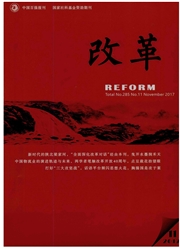

 中文摘要:
中文摘要:
根据两权分离程度和两权偏离程度变化的不同组合,我国公司治理大致经历了萌芽期、试水期、跟进期、改进期和完善期五个阶段。公司治理渐渐由股东单边治理模式向大股东主导下的利益相关者共同治理模式转化,公司治理结构和治理机制有了较大改进,并呈现出显著的经济型治理特征。但是,由两权分离与两权偏离导致的两类委托代理问题依旧存在,无论是国有上市公司,还是民营上市公司,终极股东控制下的经理人败德问题、终极股东对中小股东的剥夺问题、股东合谋和控制权争夺问题都亟待解决。
 英文摘要:
英文摘要:
According to the different combinations of the separation of ownership and control right and the deviation from control right to cash flow right, the corporate governance in China experienced five periods such as the bud, water testing, following up, improving and perfecting. The corporate governance gradually transforms from the shareholders' unilateral governance model to the stakeholders' co-governance model that dominated by the large shareholders, while the governance structure and governance mechanism have been largely improved, and appear the conspicuous characteristics of the economic governance. But, the two kinds of entrust-agent problems also exist, the problems of the moral hazard of managers under the control of the ultimate shareholders, the depriving behaviors of the ultimate shareholders, the shareholders' conspiracy and the fighting for control rights are urgently need to be effective solved both in the state-owned listed companies and the private listed companies.
 同期刊论文项目
同期刊论文项目
 同项目期刊论文
同项目期刊论文
 期刊信息
期刊信息
